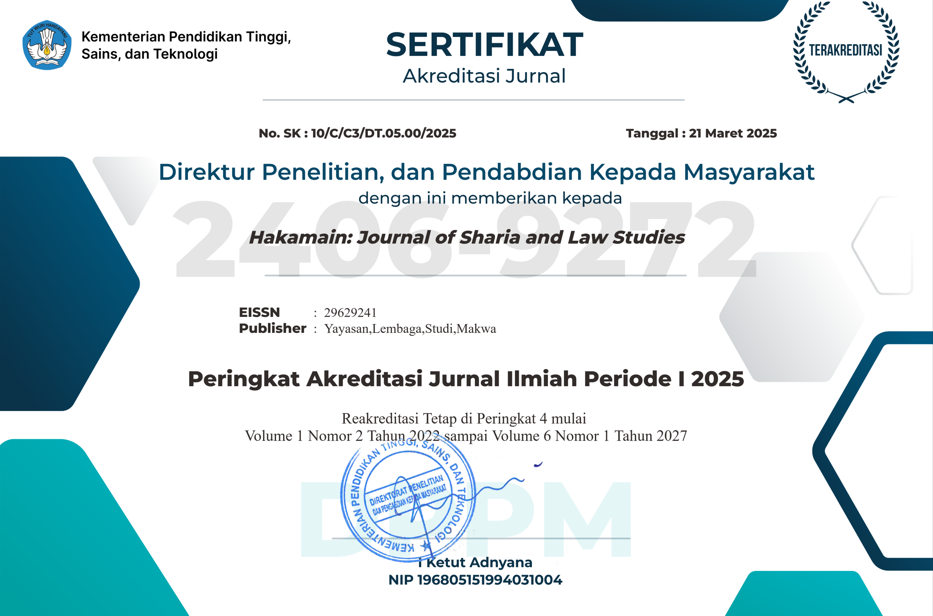Transforming Matrilineal Traditions: The Role of Ulama in Reforming Minangkabau Customary Inheritance Law
DOI:
https://doi.org/10.57255/hakamain.v4i1.1373Keywords:
Customary Law, Inheritance, Islam, Matrilineal, Minangkabau, UlamaAbstract
This article investigates the evolving role of ulama as pivotal agents in the reform of inheritance norms within Minangkabau society, particularly amid tensions between Islamic legal principles and matrilineal customary law (adat). Situated within the broader dynamics of legal pluralism and global cultural transformation, this study employs a qualitative ethnographic methodology, incorporating field observations, semi-structured interviews with religious leaders and adat authorities, and textual analysis of sermons, deliberative forums, and locally issued fatwas. The findings indicate that ulama do not operate in antagonism to tradition but strategically embed Islamic inheritance principles (faraid) within the local moral universe through culturally resonant methods—such as cultural preaching, participatory musyawarah, and the reinterpretation of foundational axioms like adat basandi syarak, syarak basandi Kitabullah. These efforts have produced a hybrid inheritance model that distinguishes between pusaka tinggi (ancestral property), retained under matrilineal logic, and pusaka rendah (acquired assets), increasingly subject to faraid distribution. The study reveals that ulama, by leveraging their dual authority as religious scholars and cultural insiders, facilitate normative convergence between syariah and customary law, generating legal syncretism that is both context-sensitive and ethically grounded. This convergence is particularly visible in urban and diasporic communities, where exposure to global Islamic discourses and structural changes in kinship systems have intensified the demand for codified and equitable inheritance practices. Conclusively, the research underscores the capacity of local religious actors to drive legal transformation from within, offering an empirical contribution to scholarly debates on Islamic legal anthropology, indigenous legal change, and the adaptive resilience of customary systems in plural societies.
Downloads
Published
How to Cite
Issue
Section
Citation Check
License
Copyright (c) 2025 Nabila Inita Zahra, Miswardi, Nabila Fitri Gunawan, M. Doni, Muhammad Yusuf Iskandar

This work is licensed under a Creative Commons Attribution-ShareAlike 4.0 International License.






